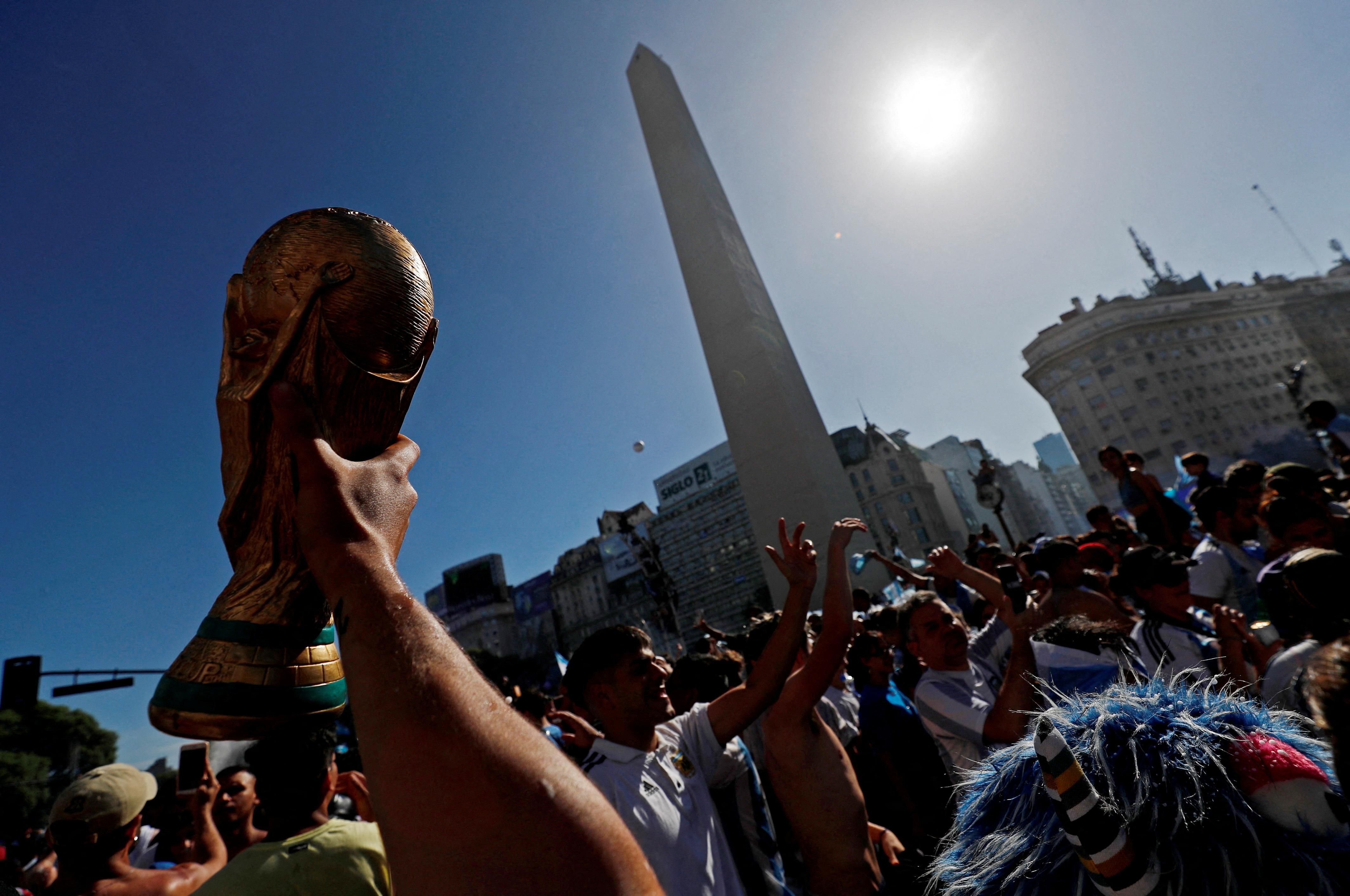Hard Numbers: Argentines celebrate, Ghana defaults, EU sets gas price cap, Ramaphosa stays, Nazi typist convicted
2 million: That's how many people showed up in Buenos Aires' iconic Obelisk square to celebrate Argentina's epic victory in the soccer World Cup in Qatar. Greetings from world leaders are still pouring in — even Brazil's President-elect Luiz Inácio Lula da Silva set aside their bitter regional rivalry to congratulateLaAlbiceleste for its third trophy.
55 billion: Ghana entered a technical default on its debt after suspending debt service payments, confirming the West African nation's worst-ever economic crisis. Ghana is rich in cocoa, gold, and oil but — like many emerging economies — is reeling under a pile of $55 billion owed to mostly foreign creditors.
180: EU member states agreed to cap the wholesale price of natural gas sold across the bloc next year to protect consumers from rising costs due in part to EU countries buying less gas from Russia. Starting Feb. 15, the price will be no higher than 180 euros per megawatt hour if it goes above that amount for three days in a row.
2,476: South Africa's President Cyril Ramaphosa was reelected as leader of the ruling African National Congress despite a strong-than-expected challenge from Zweli Mkhize, his former health minister. Ramaphosa, who's been in the hot seat over a corruption scandal involving the sale of buffalo at his game reserve, got 2,476 votes from ANC delegates compared to 1,897 for Mkhize.
10,500: Irmgard Furchner, a 97-year-old former typist at a Nazi concentration camp in Germany, was found guilty of contributing to the murder of more than 10,500 people there. Furchner — who tried to escape before her trial started a year ago — is the first civilian woman to be convicted for war crimes at Nazi concentration camps in Germany.